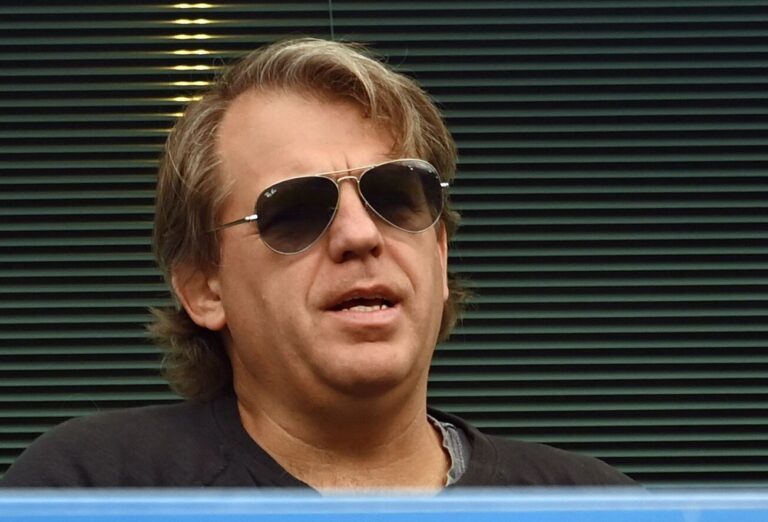
American soccer players may not have excelled in England, but American investors have run the table. More than 20 American firms and individuals now either own or have ownership stakes in English soccer teams. That exceeds the number of Americans actually playing for English clubs.
When it comes to the business of soccer, America is Brazil. There’s no other people that can organize dealmakers, capital and financial creativity the way Americans can. Because business is still America’s best game.
The Boehly group’s deal is just the latest example of the United States’ domination in soccer ownership. Chelsea, a west London team, is a longtime rival of Arsenal, a north London team owned by another American, Stan Kroenke, who also owns the Los Angeles Rams, the Denver Nuggets and the Colorado Avalanche. In south London, Crystal Palace is partially owned by Joshua Harris and David Blitzer, who co-own hockey’s New Jersey Devils and basketball’s Philadelphia 76ers. Manchester United is already owned by the Glazer family, which owns football’s Tampa Bay Buccaneers, while Liverpool is owned by Fenway Sports Group, which also owns baseball’s Boston Red Sox among other franchises.
Seeing the pattern of play here?
Before the Premier League was organized in 1991, most English teams were owned by local rich guys. They might have been good at selling sneakers, beer or even banking, but they would prove to be no match for the wave of American venture capitalists, petro-potentates or Russian oligarchs that was coming. The Americans sniffed rising asset values, while the others eyed trophies that would help sportswash their repressive regimes or kleptocratic fortunes.
What changed? The math. As the Premier League became more competitive and popular, the value of its broadcast rights exploded. Once fans could watch their teams in real time anywhere on the planet, the value of the clubs’ brands did, too. What followed was a land rush: The Glazer family recognized Man U as undervalued. When it gained control of the team in 2005, Man U was underleveraged — a status that made the company a laughably easy target for an American investor. The Glazers financed their purchase with loans backed by Man U’s assets, which enraged fans, who still very much dislike their owners for taking money out of a club that is now underperforming.
There are some ironies in all this, of course. England is a constitutional monarchy where fans demand a say in how “their” teams are managed. Conversely, American owners such as Kroenke live in a democracy but run their franchises much as monarchs once ran their kingdoms. The fans who make up the “Arsenal Supporters’ Trust” loudly opposed Kroenke’s takeover of the team, a protest that was met with characteristic silence.
Can you imagine Daniel Snyder or Jerry Jones taking meetings with such a group? Didn’t think so.
Americanization isn’t limited to top-tier teams. Jacksonville Jaguars owner Shahid Khan — a classic immigrant success story — owns yet another London team, the newly promoted Fulham, while former Disney boss Michael Eisner owns Portsmouth; actors Ryan Reynolds and Rob McElhenney co-own Wrexham.
Nor is Americanization limited to England. Frank McCourt, a former Dodgers owner, bought Olympique de Marseille — OM — one of the most famous teams in France. In Italy, Elliott Management controls AC Milan after the previous owner defaulted on his 415-million-euro debt. Rocco Commisso, the Italian American founder of Mediacom, who played soccer at Columbia University, owns ACF Fiorentina (known as La Viola). Six other clubs in the top Italian league have American owners.
Sports teams remain an asset class that almost always rises in value, so the acquisition premiums get steeper and steeper. Which means the pool of potential owners, even for lesser teams, is limited to the billionaire class — of which the United States has an outsize supply.
The only rivals to the Americans are Middle Eastern bidders, who have unlimited budgets and often exceed them in pursuit of trophies. But the rules are being rewritten to prevent owners such as Manchester City’s Sheikh Mansour from vastly outspending other clubs for talent. Under European soccer’s revised “financial sustainability” rules, clubs are going to have to spend within their clubs’ means as opposed to the owners’.
That, too, favors the American hedgies and their cost-cutting mentality, even if it doesn’t produce championships. Which means Chelsea isn’t going to be the last English — or French or Italian — club to be taken over by Americans.
The English might have invented this wonderful game, but the Yanks now own it.